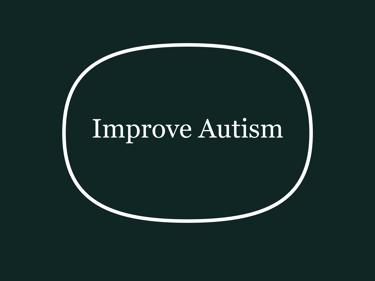References
Folinic Acid and Autism References
Frye, R.E., Slattery, J., Delhey, L., Furgerson, B., Strickland, T., Tippett, M., Sailey, A., Wynne, R., Rose, S., Melnyk, S. and Jill James, S., 2018. Folinic acid improves verbal communication in children with autism and language impairment: a randomized double-blind placebo-controlled trial. Molecular psychiatry, 23(2), pp.247-256.
Rossignol, D.A. and Frye, R.E., 2021. Cerebral folate deficiency, folate receptor alpha autoantibodies and leucovorin (folinic acid) treatment in autism spectrum disorders: a systematic review and meta-analysis. Journal of personalized medicine, 11(11), p.1141.
[1]
[2]
doi: 10.1038/mp.2016.168
doi: 10.3390/jpm11111141
Renard, E., Leheup, B., Gueant-Rodriguez, R.M., Oussalah, A., Quadros, E.V. and Guéant, J.L., 2020. Folinic acid improves the score of Autism in the EFFET placebo-controlled randomized trial. Biochimie, 173, pp.57-61.
doi: 10.1016/j.biochi.2020.04.019
[3]
Panda, P.K., Sharawat, I.K., Saha, S., Gupta, D., Palayullakandi, A. and Meena, K., 2024. Efficacy of oral folinic acid supplementation in children with autism spectrum disorder: a randomized double-blind, placebo-controlled trial. European Journal of Pediatrics, 183(11), pp.4827-4835.
[4]
doi: 10.1007/s00431-024-05762-6.
doi: 10.1007/s10578-020-01072-8
Batebi, N., Moghaddam, H.S., Hasanzadeh, A., Fakour, Y., Mohammadi, M.R. and Akhondzadeh, S., 2021. Folinic acid as adjunctive therapy in treatment of inappropriate speech in children with autism: a double-blind and placebo-controlled randomized trial. Child Psychiatry & Human Development, 52, pp.928-938.
[5]


Gluten Free Diet and Autism References
Quan, L., Xu, X., Cui, Y., Han, H., Hendren, R. L., Zhao, L., & You, X. (2022). A systematic review and meta-analysis of the benefits of a gluten-free diet and/or casein-free diet for children with autism spectrum disorder. Nutrition reviews, 80(5), 1237-1246.
doi: 10.1093/nutrit/nuab073
[6]
Alamri, E.S., 2020. Efficacy of gluten-and casein-free diets on autism spectrum disorders in children. Saudi medical journal, 41(10), p.1041.
[7]
doi: 10.1007/s00394-017-1483-2
Croall, I.D., Hoggard, N. and Hadjivassiliou, M., 2021. Gluten and autism spectrum disorder. Nutrients, 13(2), p.572.
[8]
doi: 10.3390/nu13020572
Zafirovski, K., Aleksoska, M.T., Thomas, J. and Hanna, F., 2024. Impact of gluten-free and casein-free diet on behavioural outcomes and quality of life of autistic children and adolescents: a scoping review. Children, 11(7), p.862.
[9]
doi: 10.3390/children11070862
Ghalichi, F., Ghaemmaghami, J., Malek, A. and Ostadrahimi, A., 2016. Effect of gluten free diet on gastrointestinal and behavioral indices for children with autism spectrum disorders: a randomized clinical trial. World Journal of Pediatrics, 12, pp.436-442.
[10]
doi: 10.1007/s12519-016-0040-z
Piwowarczyk, A., Horvath, A., Pisula, E., Kawa, R. and Szajewska, H., 2020. Gluten-free diet in children with autism spectrum disorders: a randomized, controlled, single-blinded trial. Journal of Autism and Developmental Disorders, 50, pp.482-490.
[11]
doi: 10.1007/s10803-019-04266-9
Hyman, S.L., Stewart, P.A., Foley, J., Cain, U., Peck, R., Morris, D.D., Wang, H. and Smith, T., 2016. The gluten-free/casein-free diet: a double-blind challenge trial in children with autism. Journal of autism and developmental disorders, 46, pp.205-220.
[12]
doi: 10.1007/s10803-015-2564-9


[13]
Whiteley, P., Haracopos, D., Knivsberg, A.M., Reichelt, K.L., Parlar, S., Jacobsen, J., Seim, A., Pedersen, L., Schondel, M. and Shattock, P., 2010. The ScanBrit randomised, controlled, single-blind study of a gluten-and casein-free dietary intervention for children with autism spectrum disorders. Nutritional neuroscience, 13(2), pp.87-100.
doi: 10.1179/147683010X12611460763922
Vitamin A and Autism References
Wang, N., Zhao, Y. and Gao, J., 2021. Association between peripheral blood levels of vitamin a and autism spectrum disorder in children: a meta-analysis. Front Psychiatr 12: 742937 [online]
Liu, J., Liu, X., Xiong, X.Q., Yang, T., Cui, T., Hou, N.L., Lai, X., Liu, S., Guo, M., Liang, X.H. and Cheng, Q., 2017. Effect of vitamin A supplementation on gut microbiota in children with autism spectrum disorders-a pilot study. BMC microbiology, 17, pp.1-14.
[14]
[16]
doi: 10.3389/fpsyt.2021.742937
doi: 10.1186/s12866-017-1096-1
doi: 10.1155/2021/5417497
[18]
Liu, Z., Wang, J., Xu, Q., Hong, Q., Zhu, J. and Chi, X., 2021. Research progress in vitamin A and autism spectrum disorder. Behavioural Neurology, 2021(1), p.5417497


Guo, M., Zhu, J., Yang, T., Lai, X., Liu, X., Liu, J., Chen, J. and Li, T., 2018. Vitamin A improves the symptoms of autism spectrum disorders and decreases 5-hydroxytryptamine (5-HT): a pilot study. Brain Research Bulletin, 137, pp.35-40.
[15]
doi: 10.1016/j.brainresbull.2017.11.001
Guo, M., Zhu, J., Yang, T., Lai, X., Lei, Y., Chen, J. and Li, T., 2019. Vitamin A and vitamin D deficiencies exacerbate symptoms in children with autism spectrum disorders. Nutritional neuroscience, 22(9), pp.637-647.
[17]
doi: 10.1080/1028415X.2017.1423268
Lai, X., Zhang, Q., Zhu, J., Yang, T., Guo, M., Li, Q., Liu, H., Wu, Q.H., Chen, J. and Li, T.Y., 2021. A weekly vitamin A supplementary program alleviates social impairment in Chinese children with autism spectrum disorders and vitamin A deficiency. European Journal of Clinical Nutrition, 75(7), pp.1118-1125.
[18A]
doi: 10.1038/s41430-020-00827-9
Probiotics and Autism References
Santocchi, E., Guiducci, L., Prosperi, M., Calderoni, S., Gaggini, M., Apicella, F., Tancredi, R., Billeci, L., Mastromarino, P. and Grossi, E., 2020. Effects of probiotic supplementation on gastrointestinal, sensory and core symptoms in autism spectrum disorders: a randomized controlled trial. Front Psychiatry. 2020; 11: 550593. DOI: https://doi. org/10.3389/fpsyt, p.550593.
doi: 10.3389/fpsyt.2020.550593
[19]
Mensi, M.M., Rogantini, C., Marchesi, M., Borgatti, R. and Chiappedi, M., 2021. Lactobacillus plantarum PS128 and other probiotics in children and adolescents with autism spectrum disorder: a real-world experience. Nutrients, 13(6), p.2036.
[20]
doi: 10.3390/nu13062036
Niu, M., Li, Q., Zhang, J., Wen, F., Dang, W. and Duan, G., 2019. Characterization of Intestinal Microbiota and Probiotics Treatment in Children With Autism Spectrum Disorders in China. Front Neurol. 2019; 10: 1084-1084 [online]
[21]
doi: 10.3389/fneur.2019.01084
Lin, C.H., Zeng, T., Lu, C.W., Li, D.Y., Liu, Y.Y., Li, B.M., Chen, S.Q. and Deng, Y.H., 2024. Efficacy and safety of Bacteroides fragilis BF839 for pediatric autism spectrum disorder: a randomized clinical trial. Frontiers in Nutrition, 11, p.1447059.
[22]
doi: 10.1016/j.chom.2023.11.021
Mazzone, L., Dooling, S.W., Volpe, E., Uljarević, M., Waters, J.L., Sabatini, A., Arturi, L., Abate, R., Riccioni, A., Siracusano, M. and Pereira, M., 2024. Precision microbial intervention improves social behavior but not autism severity: A pilot double-blind randomized placebo-controlled trial. Cell Host & Microbe, 32(1), pp.106-116.
[23]
doi: 10.3389/fnut.2024.1447059
Khanna, H.N., Roy, S., Shaikh, A., Chhabra, R. and Uddin, A., 2025. Impact of probiotic supplements on behavioural and gastrointestinal symptoms in children with autism spectrum disorder: A randomised controlled trial. BMJ Paediatrics Open, 9(1), p.e003045.
[24]
doi: 10.1136/bmjpo-2024-003045
Lee, J.C., Chen, C.M., Sun, C.K., Tsai, I.T., Cheng, Y.S., Chiu, H.J., Wang, M.Y., Tang, Y.H. and Hung, K.C., 2024. The therapeutic effects of probiotics on core and associated behavioral symptoms of autism spectrum disorders: a systematic review and meta-analysis. Child and Adolescent Psychiatry and Mental Health, 18(1), p.161.
[25]
doi: 10.1186/s13034-024-00848-3
He, X., Liu, W., Tang, F., Chen, X. and Song, G., 2023. Effects of probiotics on autism spectrum disorder in children: a systematic review and meta-analysis of clinical trials. Nutrients, 15(6), p.1415.
[26]
doi: 10.3390/nu15061415


Shaaban, S.Y., El Gendy, Y.G., Mehanna, N.S., El-Senousy, W.M., El-Feki, H.S., Saad, K. and El-Asheer, O.M., 2018. The role of probiotics in children with autism spectrum disorder: A prospective, open-label study. Nutritional neuroscience, 21(9), pp.676-681.
[27]
doi: 10.1080/1028415X.2017.1347746
Adams, J.B., Audhya, T., Geis, E., Gehn, E., Fimbres, V., Pollard, E.L., Mitchell, J., Ingram, J., Hellmers, R., Laake, D. and Matthews, J.S., 2018. Comprehensive nutritional and dietary intervention for autism spectrum disorder—a randomized, controlled 12-month trial. Nutrients, 10(3), p.369.
doi: 10.3390/nu10030369
[29]
El-Rashidy, O., El-Baz, F., El-Gendy, Y., Khalaf, R., Reda, D. and Saad, K., 2017. Ketogenic diet versus gluten free casein free diet in autistic children: a case-control study. Metabolic brain disease, 32, pp.1935-1941.
[28]
doi: 10.1007/s11011-017-0088-z
Li, Q., Liang, J., Fu, N., Han, Y. and Qin, J., 2021. A ketogenic diet and the treatment of autism spectrum disorder. Frontiers in pediatrics, 9, p.650624.
doi: 10.3389/fped.2021.650624
[30]
Carnivore diet and Autism References


[31]
Lee, R.W., Corley, M.J., Pang, A., Arakaki, G., Abbott, L., Nishimoto, M., Miyamoto, R., Lee, E., Yamamoto, S., Maunakea, A.K. and Lum-Jones, A., 2018. A modified ketogenic gluten-free diet with MCT improves behavior in children with autism spectrum disorder. Physiology & behavior, 188, pp.205-211.
doi: 10.1016/j.physbeh.2018.02.006
[32]
Allan, N.P., Yamamoto, B.Y., Kunihiro, B.P., Nunokawa, C.K., Rubas, N.C., Wells, R.K., Umeda, L., Phankitnirundorn, K., Torres, A., Peres, R. and Takahashi, E., 2024. Ketogenic diet induced shifts in the gut microbiome associate with changes to inflammatory cytokines and brain-related miRNAs in children with autism Spectrum disorder. Nutrients, 16(10), p.1401.
doi: 10.3390/nu16101401
Evangeliou, A., Vlachonikolis, I., Mihailidou, H., Spilioti, M., Skarpalezou, A., Makaronas, N., Prokopiou, A., Christodoulou, P., Liapi-Adamidou, G., Helidonis, E. and Sbyrakis, S., 2003. Application of a ketogenic diet in children with autistic behavior: pilot study. Journal of child neurology, 18(2), pp.113-118.
[33]
doi: 10.1177/08830738030180020501
Herbert, M.R. and Buckley, J.A., 2013. Autism and dietary therapy: case report and review of the literature. Journal of child neurology, 28(8), pp.975-982.
[34]
doi: 10.1177/0883073813488668
Fecal Matter Transplant and
Autism References
doi: 10.1186/s40168-016-0225-7
[35]
Kang, D.W., Adams, J.B., Coleman, D.M., Pollard, E.L., Maldonado, J., McDonough-Means, S., Caporaso, J.G. and Krajmalnik-Brown, R., 2019. Long-term benefit of Microbiota Transfer Therapy on autism symptoms and gut microbiota. Scientific reports, 9(1), p.5821.
Kang, D.W., Adams, J.B., Gregory, A.C., Borody, T., Chittick, L., Fasano, A., Khoruts, A., Geis, E., Maldonado, J., McDonough-Means, S. and Pollard, E.L., 2017. Microbiota transfer therapy alters gut ecosystem and improves gastrointestinal and autism symptoms: an open-label study. Microbiome, 5, pp.1-16.
[36]
doi: 10.1038/s41598-019-42183-0
Li, N., Chen, H., Cheng, Y., Xu, F., Ruan, G., Ying, S., Tang, W., Chen, L., Chen, M., Lv, L. and Ping, Y., 2021. Fecal microbiota transplantation relieves gastrointestinal and autism symptoms by improving the gut microbiota in an open-label study. Frontiers in cellular and infection microbiology, 11, p.759435.
[37]
doi: 10.3389/fcimb.2021.759435
Zhang, Y., Zhang, J., Pan, Z. and He, X., 2022. Effects of washed fecal bacteria transplantation in sleep quality, stool features and autism symptomatology: a Chinese preliminary observational study. Neuropsychiatric disease and treatment, 18, p.1165.
[38]
doi: 10.2147/NDT.S355233
doi: 10.1038/s41593-023-01361-0
Morton, J.T., Jin, D.M., Mills, R.H., Shao, Y., Rahman, G., McDonald, D., Zhu, Q., Balaban, M., Jiang, Y., Cantrell, K. and Gonzalez, A., 2023. Multi-level analysis of the gut–brain axis shows autism spectrum disorder-associated molecular and microbial profiles. Nature neuroscience, 26(7), pp.1208-1217.
[39]
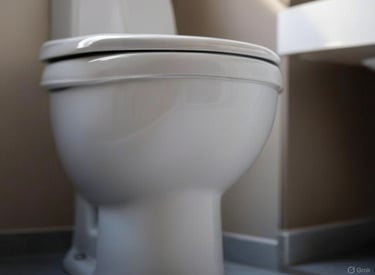

Huang, H.L., Xu, H.M., Liu, Y.D., Shou, D.W., Chen, H.T., Nie, Y.Q., Li, Y.Q. and Zhou, Y.J., 2022. First application of fecal microbiota transplantation in Adult Asperger syndrome with digestive symptoms—A case report. Frontiers in psychiatry, 13, p.695481.
[41]
doi: 10.3389/fpsyt.2022.695481
Pan, Z.Y., Zhong, H.J., Huang, D.N., Wu, L.H. and He, X.X., 2022. Beneficial effects of repeated washed microbiota transplantation in children with autism. Frontiers in Pediatrics, 10, p.928785.
[40]
doi: 10.3389/fped.2022.928785
Chelation and Autism References
Adams, J.B., Baral, M., Geis, E., Mitchell, J., Ingram, J., Hensley, A., Zappia, I., Newmark, S., Gehn, E., Rubin, R.A. and Mitchell, K., 2009. Safety and efficacy of oral DMSA therapy for children with autism spectrum disorders: Part A-Medical results. BMC Clinical Pharmacology, 9, pp.1-22.
doi: 10.1186/1472-6904-9-16
[42]
Geier, D.A. and Geier, M.R., 2006. A clinical trial of combined anti-androgen and anti-heavy metal therapy in autistic disorders. Neuroendocrinology Letters, 27(6), p.833.
[44]
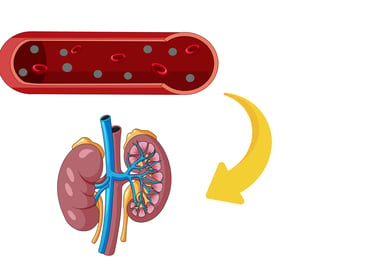

Adams, J.B., Baral, M., Geis, E., Mitchell, J., Ingram, J., Hensley, A., Zappia, I., Newmark, S., Gehn, E., Rubin, R.A. and Mitchell, K., 2009. Safety and efficacy of oral DMSA therapy for children with autism spectrum disorders: Part B-Medical results. BMC Clinical Pharmacology, 9, pp.1-22.
[43]
doi: 10.1186/1472-6904-9-17
NAC (N-acetycysteine) and Autism References
Hardan, A.Y., Fung, L.K., Libove, R.A., Obukhanych, T.V., Nair, S., Herzenberg, L.A., Frazier, T.W. and Tirouvanziam, R., 2012. A randomized controlled pilot trial of oral N-acetylcysteine in children with autism. Biological psychiatry, 71(11), pp.956-961.
doi: 10.1016/j.biopsych.2012.01.014
[45]
Nalbant, K. and Erden, S., 2023. Possible effects of N-acetylcysteine in autism spectrum disorders: major clinical aspects, eating behaviors, and sleeping habits. The Turkish journal of pediatrics, 65(5), pp.832-844.
doi: 10.24953/turkjped.2022.573.
[46]
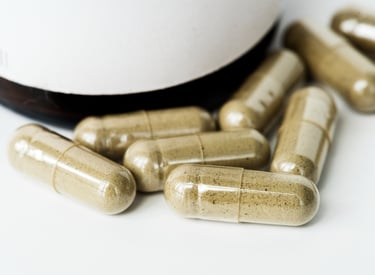

Nikoo, M., Radnia, H., Farokhnia, M., Mohammadi, M.R. and Akhondzadeh, S., 2015. N-acetylcysteine as an adjunctive therapy to risperidone for treatment of irritability in autism: a randomized, double-blind, placebo-controlled clinical trial of efficacy and safety. Clinical neuropharmacology, 38(1), pp.11-17.
doi: 10.1016/j.biopsych.2012.01.014
[47]
Lee, T.M., Lee, K.M., Lee, C.Y., Lee, H.C., Tam, K.W. and Loh, E.W., 2021. Effectiveness of N-acetylcysteine in autism spectrum disorders: A meta-analysis of randomized controlled trials. Australian & New Zealand Journal of Psychiatry, 55(2), pp.196-206.
doi: 10.1177/0004867420952540
[48]
Heavy metals, Aluminium and Autism
References
Blaurock-Busch, E., Omnia, R.A., Dessoki, H.H. and Rabah, T., 2012. Toxic metals and essential elements in hair and severity of symptoms among children with autism. Maedica, 7(1), p.38.
[HM 1]
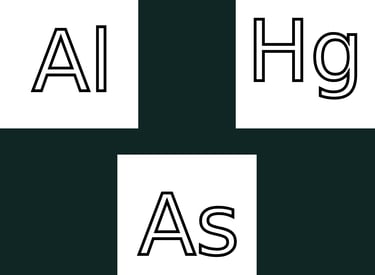

La-Ane, R., Amqam, H., Susilawaty, A., Natsir, M.F., Yusbud, M., Adhariana, H.K. and Aris, A.Z., 2025. Heavy metals exposure and risk factors for autism spectrum disorder (ASD) among school children in Makassar City, Indonesia. Toxicology Reports, p.102032.
[HM 2]
doi: 10.1016/j.toxrep.2025.102032
Fujiwara, T., Morisaki, N., Honda, Y., Sampei, M. and Tani, Y., 2016. Chemicals, nutrition, and autism spectrum disorder: a mini-review. Front Neurosci. 2016; 10: 174 [online]
doi: 10.3389/fnins.2016.00174
[HM 3]
doi:
10.3389/fpsyt.2021.742937
Dou, J.F., Schmidt, R.J., Volk, H.E., Nitta, M.M., Feinberg, J.I., Newschaffer, C.J., Croen, L.A., Hertz-Picciotto, I., Fallin, M.D. and Bakulski, K.M., 2024. Exposure to heavy metals in utero and autism spectrum disorder at age 3: a meta-analysis of two longitudinal cohorts of siblings of children with autism. Environmental Health, 23(1), p.62.
[HM 4]
doi: 10.1101/2023.11.21.23298827
Wegmann, B., Tatemoto, P., Miemczyk, S., Ludvigsson, J. and Guerrero-Bosagna, C., 2023. Identification of potentially relevant metals for the etiology of autism by using a Bayesian multivariate approach for partially censored values. Scientific Reports, 13(1), p.12622.
[HM 5]
doi: 10.1038/s41598-023-38780-9
MISC
Williams, B.L., Hornig, M., Buie, T., Bauman, M.L., Cho Paik, M., Wick, I., Bennett, A., Jabado, O., Hirschberg, D.L. and Lipkin, W.I., 2011. Impaired carbohydrate digestion and transport and mucosal dysbiosis in the intestines of children with autism and gastrointestinal disturbances. PloS one, 6(9), p.e24585.
doi: 10.1371/journal.pone.0024585
[13]
Kvamme, J.M., Sørbye, S., Florholmen, J. and Halstensen, T.S., 2022. Population-based screening for celiac disease reveals that the majority of patients are undiagnosed and improve on a gluten-free diet. Scientific Reports, 12(1), p.12647.
[13]
doi: 10.1038/s41598-022-16705-2
Ghanizadeh, A., Akhondzadeh, S., Hormozi, M., Makarem, A., Abotorabi-Zarchi, M. and Firoozabadi, A., 2012. Glutathione-related factors and oxidative stress in autism, a review. Current medicinal chemistry, 19(23), pp.4000-4005.
doi: 10.2174/092986712802002572
[MISC 3]
Patel, K. and Curtis, L.T., 2007. A comprehensive approach to treating autism and attention-deficit hyperactivity disorder: a prepilot study. The Journal of Alternative and Complementary Medicine, 13(10), pp.1091-1098.
doi: 10.1089/acm.2007.0611
